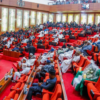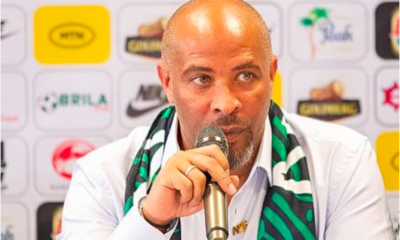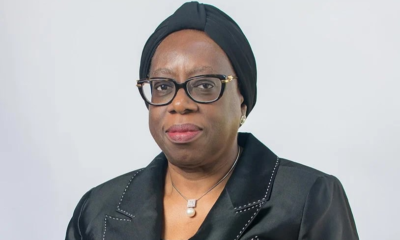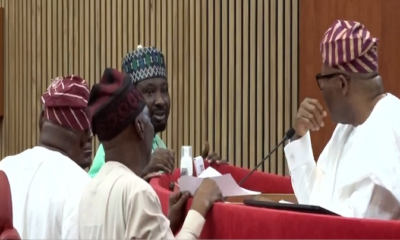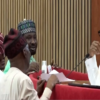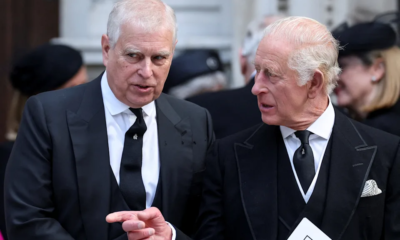Latest News
Tinubu Vows Nigeria Will Retain Major Value From Africa’s $120bn Oil, Gas Investment

President Bola Tinubu has revealed Nigeria’s ambition to retain a large proportion of value from about $120 billion worth of invested capital in hydrocarbon resources in Africa in 2024. Tinubu said this would be achieved through aggressive refining and distribution networks that would create a corresponding market for the humongous investments.
The president spoke on Monday in Lagos, while declaring open the 19th Oil Trading and Logistics (OTL) Africa Downstream Energy Week, with the theme, “Energy Sustainability: Growth Beyond Boundaries and Competition.”
Tinubu lamented the lack of access to capital in Africa, despite holding over $4 trillion investable funds. He pledged his administration’s support for Dangote Refinery to enable it achieve expansion to 1.4 million barrels per day (bpd), from the existing 650,000 bpd capacity.
Represented by Minister of State for Petroleum Resources (Oil), Senator Heineken Lokpobiri, Tinubu said by 2024, data showed that African countries collectively invested about $120 billion worth of hydrocarbon resources, with no corresponding market for it. He said this meant Africans were not getting the full value they should because of their limited refining capacity and weak distribution networks.
According to him, most of the money goes back to countries outside Africa that invested in these resources.
Tinubu explained, “The target of the Nigerian government is to see how we can retain a large proportion of this capital within our borders. That is why Nigeria is planning to launch the West African Petroleum Market. The idea is to make Nigeria the refinery and distribution hub for the entire continent.
“The whole of Africa is waiting for Nigeria to take the lead as a major supplier and distributor of petroleum products. Recall that every volume of petroleum product imported into Nigeria eventually finds its way across the West African regional market.”
Announcing what he termed a good news for Nigeria and Africa, the president said the International Energy Agency (IEA) had now acknowledged the need for sustained upstream investment after years of campaigning for a net-zero vision, a campaign that threatened the value of oil and gas globally.
He said the 2025 IEA Report clearly showed that the world needed to invest about $540 billion annually in upstream oil and gas to avoid a global energy crisis by 2050.
Tinubu added, “So, those who have been promoting the net-zero narrative are now realising that without adequate oil and gas investment, the world will face an energy crisis. Oil and gas currently account for over 50 percent of global energy demand, and by 2050, the world’s GDP will still depend heavily on hydrocarbons.
“Going by this new global narrative, if we combine investments across the entire value chain — upstream, midstream, and downstream — the world will need to invest over $700 billion annually to avoid an energy crisis by 2050. That’s good news for Nigeria.
“The discussion has always been about energy transition, but we must understand why we are transitioning and how to fund it. While sustaining investment in oil and gas, we must also expand those investments and use the proceeds to finance renewable energy. Even if we want renewables, we still need oil and gas money to fund them.”
According to the president, Africa, with its population of about 1.5 billion people, is already a ready-made market for energy products.
He said that was the reason the continent currently imported over 120 million litres of petroleum products daily.
However, Tinubu said Dangote Refinery’s expansion to 1.4 million bpd was part of the effort to serve West Africa and the entire continent, pledging his administration’s full support to the realisation of the expansion drive.
“The federal government will fully support Dangote to achieve this. That is one of the reasons petrol subsidy was removed. With subsidy in place, the private sector cannot grow,” the president assured.
He observed that the downstream and midstream sectors would only grow when the private sector mobilised capital and invested locally.
Tinubu stated that deregulation and privatisation paved the way for availability, accessibility, and affordability, warning that no matter the challenges, if Nigeria does not embrace reform, the economy may crumble.
He recounted that before now, the government was spending over N2 trillion annually on fuel subsidies, saying those funds are now being redirected to more productive uses.
“The truth is, the subsidy regime ended up subsidising consumption across the West African sub-region, not just Nigeria,” Tinubu said.
He said stakeholders must understand that the world’s energy dynamics were changing, adding that when energy security is talked about, it’s not just about drilling barrels but about creating a sustainable ecosystem across the value chain.
The president explained, “Africa has crude oil reserves of about 140 billion barrels and natural gas reserves exceeding 600 trillion cubic feet. Even if we explore all our hydrocarbon resources, the entire continent will still be contributing less than 3 percent to global emissions.
“Global warming will not stop even if Africa shuts down its three percent contribution, while those responsible for 97 percent are not slowing down on emissions. That is why it will be disastrous for Africa to abandon its hydrocarbon development.”
He said, “When Nigeria speaks, we must speak boldly and insist on our own narrative. We must have a common agenda and a united African voice against the unrealistic promoters of net zero.
“The downstream sector cannot succeed without a strong upstream and midstream foundation. There are opportunities for everyone with the requisite capital and expertise.”
Tunubu said over the past two years, there had been renewed investor interest in Nigeria’s oil and gas industry.
Stating the availability of capital in the United States and other parts of the world, he said Africa was estimated to hold over $4 trillion in investable funds.
But the challenge, according to him, was that Africans have not been able to access this capital.
Instead of allowing the Western narrative to weaponise capital against Africa, Tinubu said the continent must develop home-grown solutions for energy financing — across upstream, midstream, and downstream segments.
He said, “Even if the West decides not to invest in our hydrocarbons, Africa must continue to invest in its energy future.
“There is no truth in the so-called billions of dollars pledged globally for carbon capture and climate financing; these are mostly rhetoric and unfulfilled promises.
“No one will be held accountable if they fail to deliver the promised funds. So, we must take our destiny into our own hands and expand investment opportunities across the oil and gas value chain — upstream, midstream, and downstream.”


